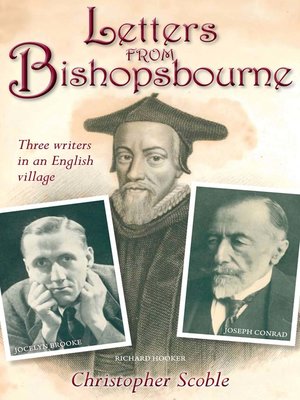
Sign up to save your library
With an OverDrive account, you can save your favorite libraries for at-a-glance information about availability. Find out more about OverDrive accounts.
Find this title in Libby, the library reading app by OverDrive.



Search for a digital library with this title
Title found at these libraries:
| Loading... |
Letters from Bishopsbourne is a collective biography of three of the most distinguished stylists writing in the English language, who lived and died in the small village of Bishopsbourne just south of Canterbury in Kent: Richard Hooker (1554-1600), the theologian whose major work. Of the Laws of Ecclesiastical Polity, provided the philosophical underpinning of the Elizabethan Anglican settlement; the celebrated author Joseph Conrad (1857-1924) who wrote his last novels there; and Jocelyn Brooke (1908-1966), the Proustian author of the 'orchid' trilogy which shot him to fame in the late 1940s. The book recounts their life of action before coming to the village in search of rural peace, and the challenges they faced after settling there. All three died in the village relatively young, frustrated by life and literature: Hooker because the last three books of his great work were politically controversial and his friends would not allow him to publish; Conrad because he was completely written out and struggled to produce even sub-standard work; and Brooke, after his short-lived success, because the publishing world had turned against him, refusing to handle his final works. The book provides a completely novel topographical context for each of the writers. Other celebrated inhabitants appear upon the scene, including the film director, Michael Powell, born nearby, the writer Alec Waugh, a cricket and golf enthusiast, and the eccentric cricketing patron, Sir Horace Mann, who for 25 years of the 18th century turned the village's great house into the fulcrum of English cricket.






